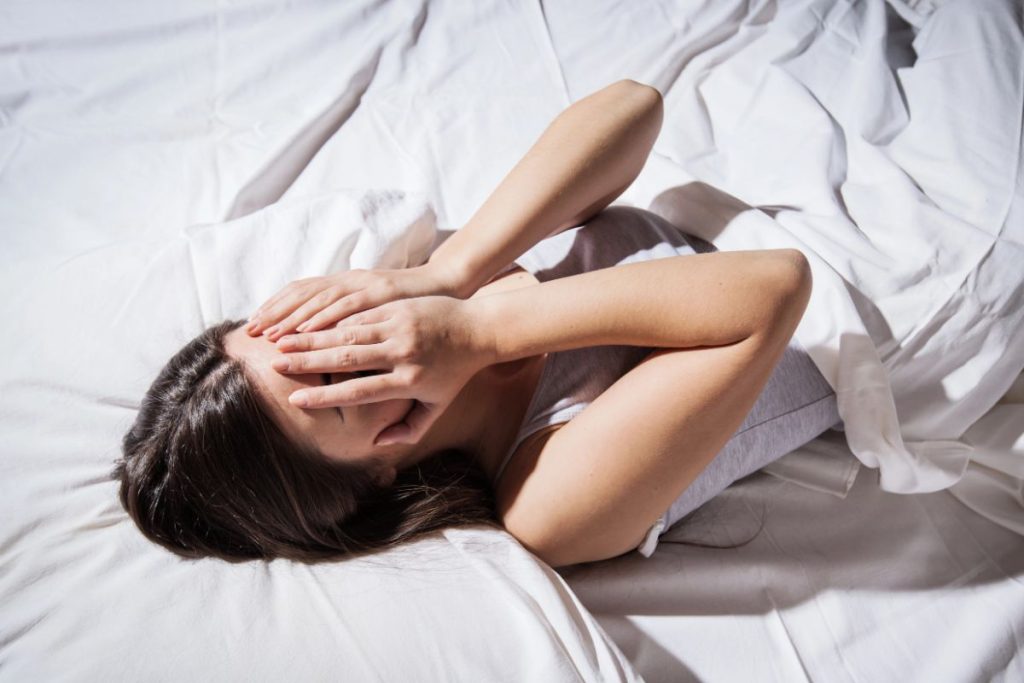What are the common reasons for troubled sleep?
- Underlying medical conditions
- Physical disturbances
- Bad sleeping habits
- Lifestyle choices
- Environmental issues
Overview
- Lack of sleep can negatively impact one’s mental and physical health leading to mood fluctuations, difficulty concentrating, and tiredness.
- Common causes of sleep disturbances include medical issues, physical discomfort, unhealthy sleep practices, lifestyle choices, and environmental influences.
- Consulting a healthcare professional or sleep specialist can help identify underlying conditions and provide treatment recommendations.
Chronic sleep deprivation can severely impact both your mental and physical well-being, leading to mood swings, difficulty concentrating, and persistent fatigue. If you’re facing ongoing sleep issues, it’s advisable to seek help from a healthcare professional or sleep specialist.
They can perform specialized tests to diagnose underlying conditions and offer tailored treatment recommendations. This article explores reasons for troubled sleep to help you understand potential issues and make informed decisions about your treatment.
Underlying Medical Conditions
Troubled sleep can be caused by various reasons. Short-term insomnia, for example, may result from stress, while certain medications can temporarily disrupt your sleep. However, chronic sleep loss is often indicative of more persistent sleep disorders, such as long-term insomnia, sleep apnea, and parasomnias.
If left undiagnosed, it can lead to a range of issues, including heightened stress and anxiety, increased sensitivity to pain, and weight gain.
To determine if an underlying sleep disorder is affecting your sleep quality, consider undergoing polysomnography or a sleep study. This test monitors various physiological functions during sleep, including brain activity, heart rate, breathing, and muscle movements.
The results can help doctors diagnose the issue and develop effective treatment plans.
Physical Disturbances

Physical conditions can impact sleep quality. Arthritis can cause pain and discomfort, making it difficult to find a comfortable sleeping position and achieve a restful night’s sleep.
Chronic pain, whether from back issues or other medical conditions, can also disrupt sleep patterns, making it hard to fall asleep, stay asleep, or both.
Hormonal imbalances can further affect sleep. For instance, menopausal women often experience hot flashes and night sweats, leading to frequent awakenings. Furthermore, thyroid and adrenal disorders can contribute to insomnia and other sleep disturbances.
Bad Sleeping Habits
Maintaining an inconsistent sleep schedule can disrupt your body’s internal clock, making it challenging to fall asleep and wake up at regular times.
Excessive screen time, particularly before bed, can also contribute to sleep problems. The blue light emitted by electronic devices can inhibit melatonin production, a hormone crucial for regulating sleep-wake cycles. Additionally, consuming large or heavy meals close to bedtime can interfere with sleep as your body focuses on digestion.
Stimulants like caffeine can further disrupt your sleep. Caffeine blocks the effects of adenosine, a neurotransmitter that promotes sleepiness. Coffee, a common source of caffeine, can increase alertness and prolong wakefulness, making it difficult to fall asleep.
Lifestyle Choices
Lifestyle choices can also impact your sleep quality. A lack of exercise can lead to poor sleep. Without sufficient physical activity, your body may lack the energy needed for restful sleep, resulting in fatigue and difficulty in falling asleep. Additionally, a sedentary lifestyle can contribute to muscle tension and stiffness, making it harder to relax and stay asleep.
One of the most common lifestyle factors affecting sleep is substance abuse. Stimulants like cocaine and nicotine can interfere with your ability to fall and stay asleep due to their stimulating effects on the brain.
Conversely, depressants such as alcohol and certain sedatives might initially help you fall asleep, but prolonged use can lead to tolerance and dependence. Abruptly stopping these substances can result in withdrawal symptoms and disrupted sleep.
Environmental Issues
Excessive noise from traffic, construction, or neighbors can disturb your rest and make it difficult to fall back asleep. Temperature extremes also affect sleep comfort. On the other hand, excessive heat can cause sweating and discomfort, while extreme cold can lead to restlessness and shivering.
Moreover, exposure to artificial light, particularly blue light from electronic devices, can disrupt your circadian rhythm. This interference with your natural sleep-wake cycle can make it challenging to fall and stay asleep.
What Happens When You Don’t Get Enough Sleep?
Insufficient sleep can profoundly impact your health. Long-term sleep deprivation is associated with a higher risk of chronic conditions, including heart disease, diabetes, and stroke.
Physically, chronic lack of sleep can weaken your immune system, making you more susceptible to infections. It can also disrupt hormones that control appetite and metabolism, potentially leading to weight gain.
Cognitively, sleep deprivation can impair your concentration, problem-solving abilities, and memory. Additionally, it increases the risk of accidents due to diminished alertness and slower reaction times.
Key Takeaway
By understanding the likely reasons for your troubled sleep, you can take proactive steps to address them and improve not only your sleep quality but also your overall well-being.
Are you interested in learning more about your sleep issues? Why not try a sleep test? Here at Perpetual Help Medical Center-Las Piñas, we understand the crucial role that quality sleep plays in your overall health. Our polysomnography tests are designed to provide a thorough understanding of your sleep, leading to personalized solutions that improve your sleep quality and enhance your daily life. Reach out to us to learn more.

